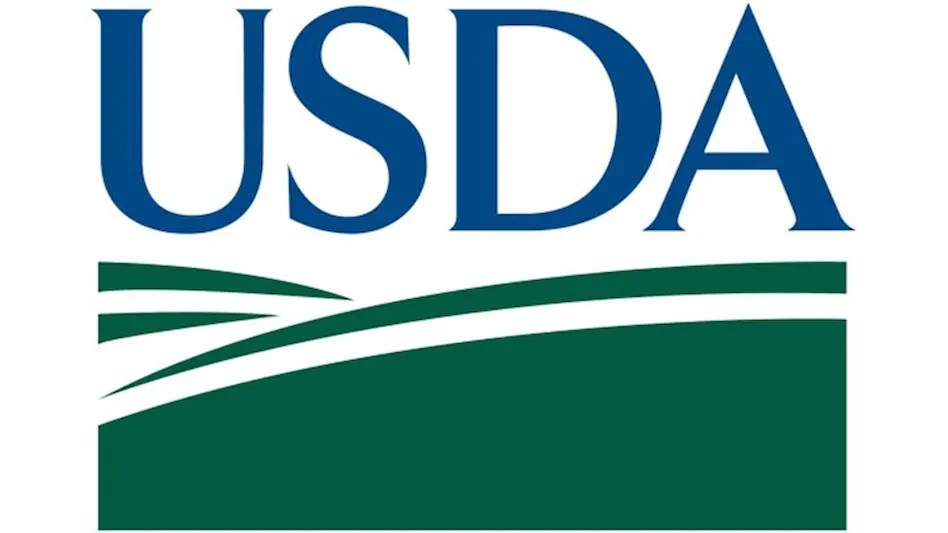
Photo courtesy GS1
Ewing, N.J. — Eight food industry organizations have united to form the Food Industry FSMA 204 Collaboration to enhance industry-wide awareness of the U.S. Food and Drug Administration’s (FDA’s) Food Traceability Rule, which implements Section 204(d) of the U.S. FDA Food Safety Modernization Act (FSMA). Participating organizations include the Association of Food and Drug Officials (AFDO), FMI – The Food Industry Association (FMI), GS1 US, Institute of Food Technologists (IFT), International Foodservice Distributors Association (IFDA), International Foodservice Manufacturers Association (IFMA), International Fresh Produce Association (IFPA) and National Association of State Departments of Agriculture (NASDA).
The Collaboration will share clear, concise messaging and resources that enable industry to take action in preparing for FSMA Rule 204, which was published in November 2022. FSMA Rule 204 mandates a comprehensive tracking and tracing system for certain high-risk foods listed on the U.S. FDA's Food Traceability List (FTL), including fresh produce and leafy greens, deli salads, certain types of seafood and more. The Collaboration will provide a forum where business and government officials can come together to educate industry and potentially help ease the burden of compliance.
Recognizing the imperative for a collective response, the Collaboration is founded on core principles, including operational effectiveness through collaboration, traceability for enhanced food safety, standardized data collection and widespread training and education initiatives. The Collaboration prioritizes the enhancement of awareness and understanding of emerging traceability technologies to help ensure the safety and integrity of the food supply chain. Through united efforts, the Collaboration promotes acceleration of industry-wide compliance with FSMA Rule 204.
For more information about the Food Industry FSMA 204 Collaboration and to access combined resources and future educational opportunities from all participating organizations, visit Food Industry FSMA 204 Collaboration.
FOOD INDUSTRY LEADERS DEMONSTRATE SUPPORT. "As state and local agencies, AFDO members are often on the front lines, receiving critical information during foodborne illness outbreaks,” said Steven Mandernach, executive director, AFDO. “We are committed to collaborating with all partners, including industry, to successfully implement FSMA Rule 204 traceability requirements. By working together, we can enhance food safety, ensure efficient traceability and protect public health across the entire supply chain.”
“Food safety is the single most important issue that food retailers, wholesalers and suppliers focus on every day,” said Leslie G. Sarasin, president and CEO, FMI – The Food Industry Association. “FDA’s FSMA Rule 204 is the most significant regulation the food industry has ever faced and will demand tremendous investments for recordkeeping, data management and systems changes. This Collaboration demonstrates our collective commitment to sharing information and working together to ensure the food supply chain has the resources and clarity it needs for compliance.”
“Compliance with FSMA Rule 204 presents a significant challenge for U.S. and foreign agri-food interests, as it imposes unprecedented recordkeeping requirements and necessitates the adoption of advanced traceability technologies,” said Angela Fernandez, senior vice president of market development, GS1 US. “By convening food safety, supply chain logistics and data management experts across many food segments, the new Collaboration aims to share best practices for meeting Food Traceability Rule requirements.”
“IFT’s Global Food Traceability Center has played a critical role in food traceability for many years and now, with the window to FSMA Rule 204 compliance quickly closing, organizations need our guidance more than ever,” said Blake Harris, technical director, IFT’s Global Food Traceability Center. “Since the FSMA Rule 204 announcement, we have created a series of educational resources that will be essential to food organizations on their complicated compliance journey to help boost organizational traceability awareness.”
“It is critically important for manufacturing companies serving the food-away-from-home marketplace to meet FSMA Rule 204 compliance requirements,” said Phil Kafarakis, president and CEO, IFMA. “The continued strength of consumer spending for food-away-from-home mandates that manufacturers exceed consumer expectations for safe, flavorful and portable meals that go beyond FSMA Rule 204 compliance.”
“Foodservice distributors are deeply committed to providing safe food products to their customers and are highly skilled in tracking and tracing the volume and variety of food they distribute,” said Mark S. Allen, president and CEO, IFDA. “Collaborating with supply chain partners is key to enhancing food safety and advancing goals set forth under FSMA Rule 204.”
“Implementation of FSMA Rule 204 requirements is a cross-industry challenge,” said Ed Treacy, vice president of supply chain, IFPA. “This collaboration will ensure that the resources created and education offered to our collective members are coordinated and aligned.”
"FSMA Rule 204 underscores the significance of understanding how the broader supply chain interacts with farmers, extending beyond just fresh fruits and vegetables,” said Ted McKinney, CEO, NASDA. “While the value of traceability is widely recognized, its effectiveness in enhancing food safety and public health will hinge on its practical application. Therefore, effective education, particularly in the early stages of this initiative, is crucial.”
Latest from Quality Assurance & Food Safety
- Bird Flu: What FSQA Professionals Need to Know
- Registration Open for 129th AFDO Annual Educational Conference
- Frank Yiannas, Aquatiq Partner to Expand Global Reach of Food Safety Culture
- World Food Safety Day 2025 Theme: Science in Action
- Ancera Launches Poultry Analytics System
- USDA Terminates Two Longstanding Food Safety Advisory Committees
- Catalyst Food Leaders Announces Virtual Leadership Summit for People in Food
- Food Safety Latam Summit 2025 Set for Mexico City





